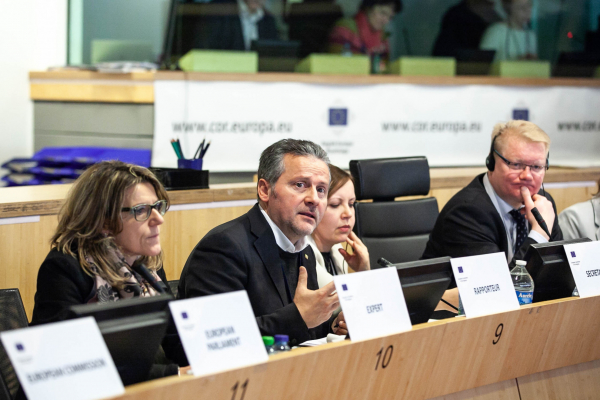“Disasters know no border, which is why we need to step-up our cross-border cooperation” says Roberto Ciambetti

Mr Roberto Ciambetti (IT/ECR), President of the Veneto Regional Council in Italy and Member of the European Committee of the Regions’ Bureau, is the rapporteur of the European Committee of the Regions representing the opinion of EU’s local and regional governments on how local and regional authorities located along the national border can work together in becoming more resilient to disasters.
“Disasters know no border. A flood does not stop at a national border and if one side of a border is not resilient to disasters, this impacts the other side of the border. As the Veneto region, we personally know what the increase in the frequency and intensity of natural disasters means for local communities. We need the EU to start integrating the principle of disaster resilience into all its investments so that EU money does not put public lives at risk” said Roberto Ciambetti.
The opinion of the European Committee of the Regions being prepared under the leadership of Roberto Ciambetti highlights a number of major challenges and proposes solutions for cross-border regions across Europe when it comes to resilience to natural disasters. “We need integrated databases shared between countries to provide a clear picture of regions in terms of materials, resources, equipment and specialised volunteers, mapping risks and evaluating them. This would enable more effective plans, procedures and interventions in response to disasters,” explained Mr Ciambetti.
The CoR opinion is calling for scientific committees to be set up to define risk scenarios more accurately and to network knowledge and skills. It is also suggesting that highlyqualified “risk managers” are recruited in local and regional authorities who would be equipped with specific knowledge and multidisciplinary skills and who in turn can assist local and regional administrators in emergency situations and in planning.
Furthermore, the opinion put emphasis on the importance of training and education. It notes the urgent need to provide specialised training for local administrators (in line with the Making Cities Resilient campaign promoted by the United Nations Office for Disaster Risk Reduction) to boost their awareness and provide them with better information tools given that they are directly responsible for local inhabitants and the protection and development of their areas. It also notes the need for university courses in civil protection for young people including projects on risk mitigation.
With regards to young people, the CoR is drawing attention to the significant opportunities that must be offered to those involved in solidarity work in the disaster risk prevention sector through the European Solidarity Corps. This option should take the form of volunteering or apprenticeship opportunities or traineeship or work experiences.
The adoption timetable is as follows: Adoption by Members of the European Committee of the Regions’ Natural Resources Commission was on 28 March; adoption by all Members of the CoR will be at the 26-27 June plenary session.

